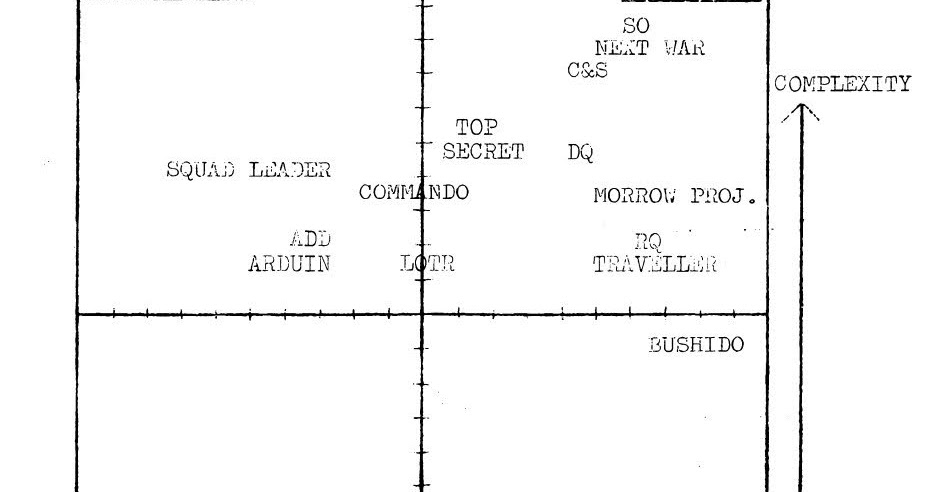when a gargantuan reptilian creature swats you with his tail, in our world you would likely go bouncing across the ground and not get back up. In most versions of D&D, you would get back up and perhaps go slay that dragon with a sword.
So the point is games are not reality. Games lay down different ground rules. The world either reflects those ground rules or ignores them entirely and pretends things are like our world despite facts to the contrary in the world. The rules might even only apply to PCs and the rest of the world is more normal (well as normal as possible given magic).
I think I'm a bit more sympathetic to you than
@Ovinomancer is, perhaps because I spent 19 years playing Rolemaster as my primary system.
In RM, for instance, spells are divided into "lists" that - in D&D terms - can be seen to correspond to different spell-casting classes. And so just like you said about a wizard or druid in your D&D game, in RM a character can talk about what spell lists s/he has been traind in; magical tomes can be discovered from which a person might learn a new spell list; etc.
This can be contrasted with 4e D&D: in 4e the categories of Arcane, Divine, Primal and Psionic
are part of the fiction - that's the whole point of those keywords - but the individual powers don't need to be thought of in in-fiction terms. (An exception to this is some wizard's spells, which can be written down in spell books that are part of the fiction, just like in other versions of D&D.)
This is even moreso for martial powers: the fighter in my group's long-running 4e game was a polearm AoE forced-movement specialist, and had a range of powers, enhanced by feats and magic, that let him attack multiple targets and knock them away, lure them in, and/or take them down. At the table each time the player declared an attack he was using a discrete power; but in the fiction there was no reason to think of it in those terms - he was just a super-buff dwarven polearm master doing his thing, wrongfooting and then slaughtering his enemies with his deft polearm work.
But now here is where I agree with
@Ovinomancer: a system that is going to support the in-fiction approach that you prefer, or alternatively a system that is going to support the more metagame approach found in 4e, needs to be
consistent if it is going to do that. And Ovinomancer's point about dragons vs giants in D&D is (for me) a telling one: in the fiction there is really nothing to distinguish between being tail-swiped by a dragon and being hit by a rock thrown by a giant, but in 5e - based on my reading of the SRD - only the latter can knock you flat (and only if thrown by a stone giant at that).
Compare this to RM, where these similar attacks are all resolved on a similar table doing similar crits (Impact or Krush) and so all have the same sort of likelihood of causing knockback, or breaking limbs, etc.
Even AD&D has idiosyncrasies like the 5e one I just pointed to: purple worms and sperm whales can swallow you whole but dragon turtles can't. Why not? There's no in-fiction logic to it that I can see.
To me it seems that D&D uses these special abilities (knockdown, knockback, swallow whole, etc) not to create a sense of what is possible in the fiction but to create particular stories associated with particular creatures. Character abilities are the same, it seems to me - with the ranger's ability to use crystal balls, or a paladin's ability to heal with a touch, being prime examples from AD&D.
This is what I found so strong about 4e compared to 3E D&D. Whereas the latter seemed to want to move towards RM - with its skill ranks and combat manoeuvre rules and the like - but still kept the D&Disms that get in the way of that, 4e really embraced the notion that particular abilities, be they on PCs or on NPCs/creatures, are about
the story of this game element, not
the physics of the world.
For someone who liked those aspects of the classic versions of D&D but had little interest in "skilled play", 4e D&D was D&D done right!
For rules-as-physics, on the other hand, I would always go to a system like RM or HARP or RuneQuest. But these systems don't produce the gonzo variation of effects you see in D&D precisely because of the consistency of the fiction their systems produce.
Another system which has a strong rules-as-physics element to it is Burning Wheel (especially its full melee combat system). In some ways I think BW is easy to drift to for a RM player - it has intricate PC build including the familiar skill ranks, bloody combat with a death spiral, and a general tendency towards universal resolution rather than discrete abilities and sub-systems for each creature or each spell. It still ensures variety in the fiction, like D&D and much more reliably than RM I would say, but via its approach to consequence narration which sits alongside rather than overriding its rules-as-physics aspects.

 playingattheworld.blogspot.com
playingattheworld.blogspot.com



